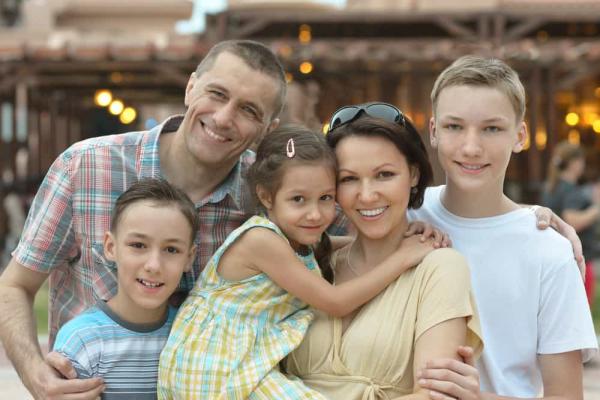
I haven't taught any of my children to ride a bike. Not one of the four.
I've helped, for sure. I've held on to the seat and steadied them while they will their bodies to balance and their feet to push the pedals, but my husband has always been the one tolet go of the seat and enable their independence.
This never even occurred to me until I was working with my youngest on riding sans training wheels last month. My husband had been gone for the weekend and sensing my little guy was ready, I took the training wheels off and started coaching him along. When my husband arrived home he put one steady hand on the back of my son's bicycle seat, lingered for a mere second, and sent him on his way. Just like that, he was riding a bike.
And I realized, it was theletting go that was hard for me.
If my husband hadn't come home, I might still be scampering along behind that little boy's bike - holding him back, rather than watching him soar.
One of the most popular posts on my blog is about the importance of teaching our kids to do hard things. Recently a reader responded to that post by saying I really want to do this, but how?
Excellent question! And one Mrs. Can't-let-go-of-the-bicycle-seat hasn't stopped thinking about.
Life is full of hard things. Full of them. Learning to walk is tough. Growing up is challenging. Learning to become a good spouse is no easy feat, settling into the role of mother is hard. Hard. Hard. Hard. So why wouldn't we want to prepare our kids to handle hard things well - to not balk at the pressure? Why shouldn't we seek to giving them eyes that see beyond what's right in front of them, intentionally training them and give them the tools to handle hard things?
I'm thankful to the Brave reader who asked that question, because it's worth thinking about as a parent. Here are 5 things I want to be intentional about in raising kids who can do hard things, kids who are overcomers.
Let them fail
Really. Our home is a training ground for life. And so is yours. It's a place where our children are loved no matter what, a place where their worth is not based on performance, and the safest place for them to trip and fall and learn about what it takes to get back up again.
As the supplier of band-aids and ice packs, this can be hard for a mama to do. My natural tendency is to smooth out all the rough spots, champion my children to success and just continue holding on to their bicycle seats for a good long while. But this does not help them in the long run. A cut-throat work place or college class are not the best place for our kids to be learning these lessons for the first time. Be intentional about giving your children a safe place to mess it all up, to crash and burn, to learn consequences and forgiveness and exactly what it takes to get back up and try again.
Equip them
Watching our children deal with hard things give us the opportunity to teach them how to respond well. Recently my daughter took two weeks of group swimming lessons - something that was new to her. Although she was scared, she made it through the first week quite well. She conquered some fears and by the end of the week she was having all kinds of fun. However, after a long weekend she began to fear swimming lessons again and didn't want to return for the second week. Through tears she told me how much she hated swimming. And I quickly understood this wasn't really about swimming anymore. She was being seized by fear. She loved swimming just a few days earlier and now she was believing a lie, believing her fears.
One thing I'm learning is that no matter how irrational, improbable, or ridiculous it may seem to someone else, fear is
real. We all fear different things, but when you are in the midst of it, it becomes your reality. Minimizing someone else's fear is not helpful.
I remember having a math teacher once who seemed to think all of math was easy. Which was great for him, but it did not change the fact that it was NOT easy for me. Ever. I fought for every good math grade I got. It never got easy, but I was able to learn the principles well enough to get through it andavoid it for the rest of my adult life. I'm kidding ... partly.
The same strategy applied to my scared swimmer. Telling her swimming is fun and not scary would not be helpful, but teaching her how we handle fear, how we fight lies that can eat away at our hearts, is quite useful. Have your kids recite scripture, write the Word, and pray about it together. Childhood fears can be exhausting and frustrating as a parent, but these are the moments when the Word of God can become living and active for our children, when they get to learn how to apply it to their everyday lives. What an awesome opportunity we have!
Just recently that scared swimmer (who is now loving swimming again) was working through her new Faith Journal

